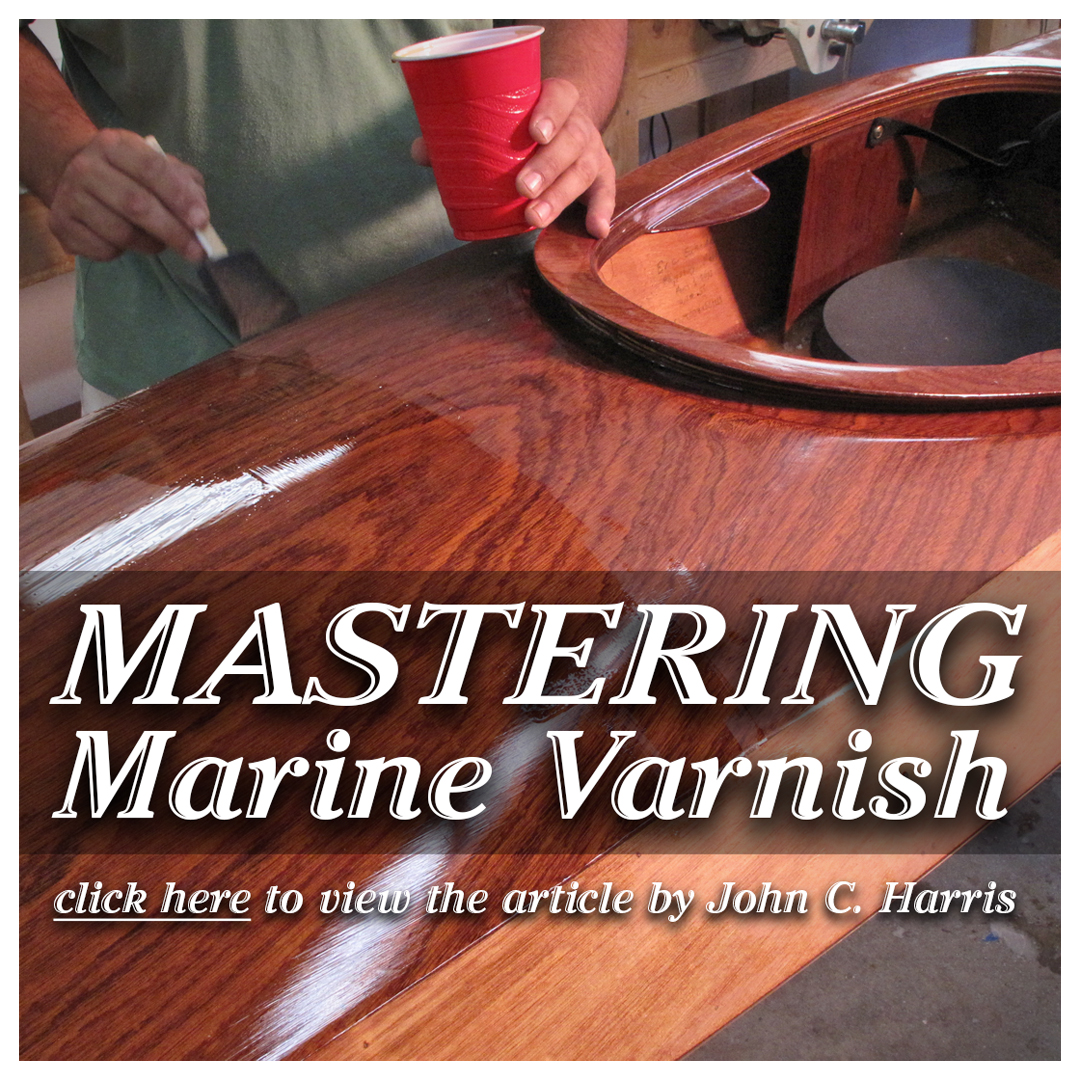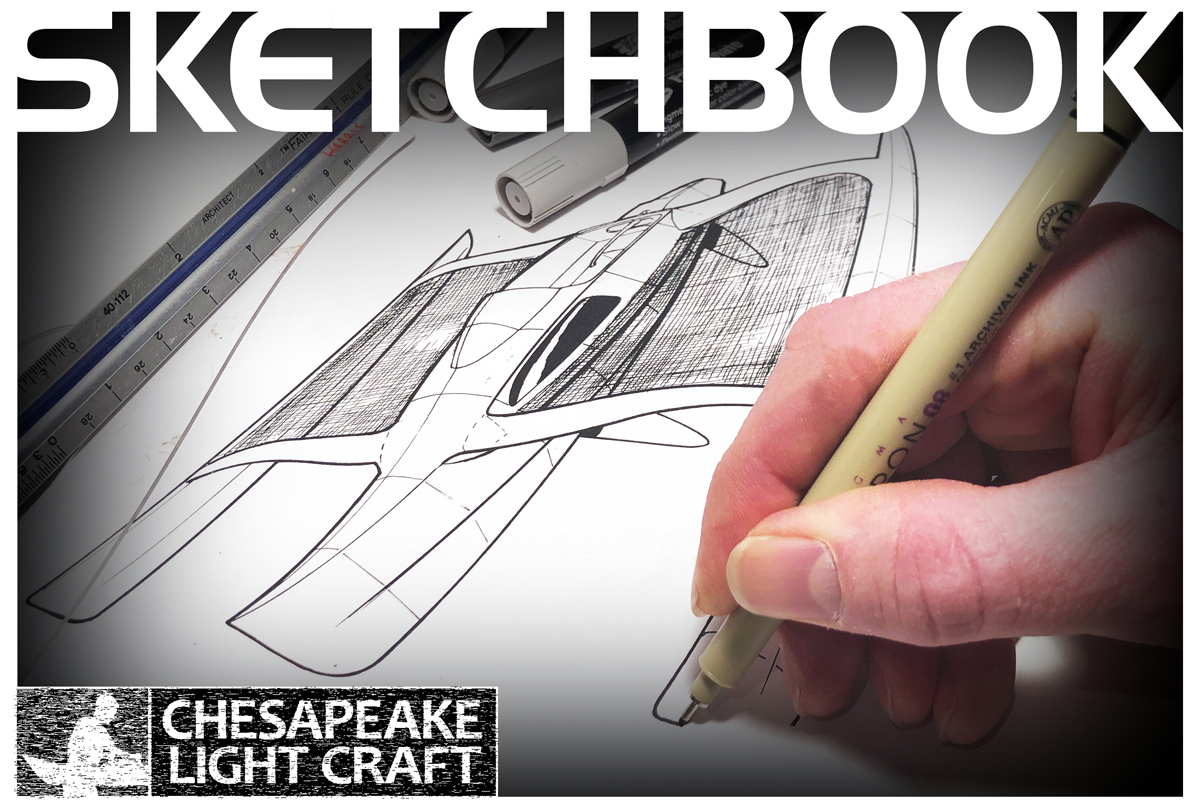Builders' Forum |
|
| ↓ Scroll to Last Comment ↓ | Forum Guidelines | Builders' Forum | |
I am building a 14 foot rowing dory. The plans call for Sheer stringers of 3/4 by 2 inches running the complete length of the boat. I have 16 foot clear quater-sawed douglas fir I am using for these stringers. The question I have is will I be able to steam bend them to fit in a single piece? The half widths for the plans vary from 10.5 inches at the transom, to 24 inches mid-ship to 1 inch at the stem.
7 replies:
RE: Bending Wood
Why not rip and glue ? Thinner boards are more cooperative. I have used ripped Ash for an external stem on my Petrel and it takes one heck of a bend.
RE: Bending Wood
A long piece of PVC pipe makes an easy and cheap soaker for long lengths of wood. You can also pipe steam into it, but you will have to support the PVC because it gets a bit bendy with heat.
RE: Bending Wood
I remember reading about a proceedure for bending wood that involved soaking the wood in amonia. I beleive this was in an article about building model boats - does anyone know if this works for boats large or small?
RE: Bending Wood
I wouldn't consider using amonia for anything because it is dangerous, especially to the respiratory system.
You can steam the wood using PVC piping and a water kettle, works well according to what I have read. Personally, I don't see why you couldn't rig up a heavy plastic wrap around the wood and pump in steam at one end. Elevate one end of the plastic wrapped wood so that the steam rises on the inside and keep the water boiling until the whole piece of wood is thoroughly soaked. Just an idea.
Robert N Pruden
RE: Bending Wood
I've soaked, steamed, and ripped on various occasions. Soaking is better than dry, but steaming allows the greatest flexibility for bending.
For soaking I've placed the pieces into the lake and weighted them down for a few days. For weights I use four plastic gallon milk jugs filled with sand. Use rope to tie two of the jugs together using the handles - making two sets. Place the rope over the wood in the wate to weight it down, one at each end of the wood being soaked. The wood floats against the rope keeping it off the bottom.
For steaming I build an inexpensive plywood box to hold the wood. Keep the box interior just large enough to hold the pieces being steamed. With the box, I drill through the sides and insert dowels at various locations along the length to form a rack system. I can get 3 or 4 rows high with no pieces touching each other. As some woods bleed color when steamed, it is often important to not let the pieces touch. For many species it doesn't matter, especially the lighter ones. Set up the box at a slight angle so the steam can rise and the condensation can run back down into the kettle.
On thick pieces, I agree with the rip and glue method. For really tight bends, you'd be amazed at what you can do with a combination of rip, steam, clamp and glue.
Wade













RE: Bending Wood
» Submitted by Jim C - Sat, 9/12/09 » 4:33 PM
I built a 17' sharpie (with a 48" beam) using 3/4 by 2" Doublas fir sheer clamps and chine logs. As it had a square transom, I probably didn't have to bend them as much as you will, but they did bend. They were kiln dried, and I neither steamed nor soaked them. I worked slowly, using many clamps and drawing them up slowly. That might work for you.
Steaming would be difficult with such long pieces, but you could make a steaming box for them. A recent issue Wooden Boat had an interesting article on the process -- I could proide the citation or maybe even a copy if you need it. But there is another alternative, which is to soak them. Ideally, submerge them in a tub of some sort. But as you may not have a 16' tub (!) you might try wrapping them in wet towels and keeping them wet at least overnight, and then clamping them in position whle still wet. Again, probably best to work slowly, and not try to force the bend with any strong movement. Leave them clamped in position until they dry, and then proceed with your assembly.